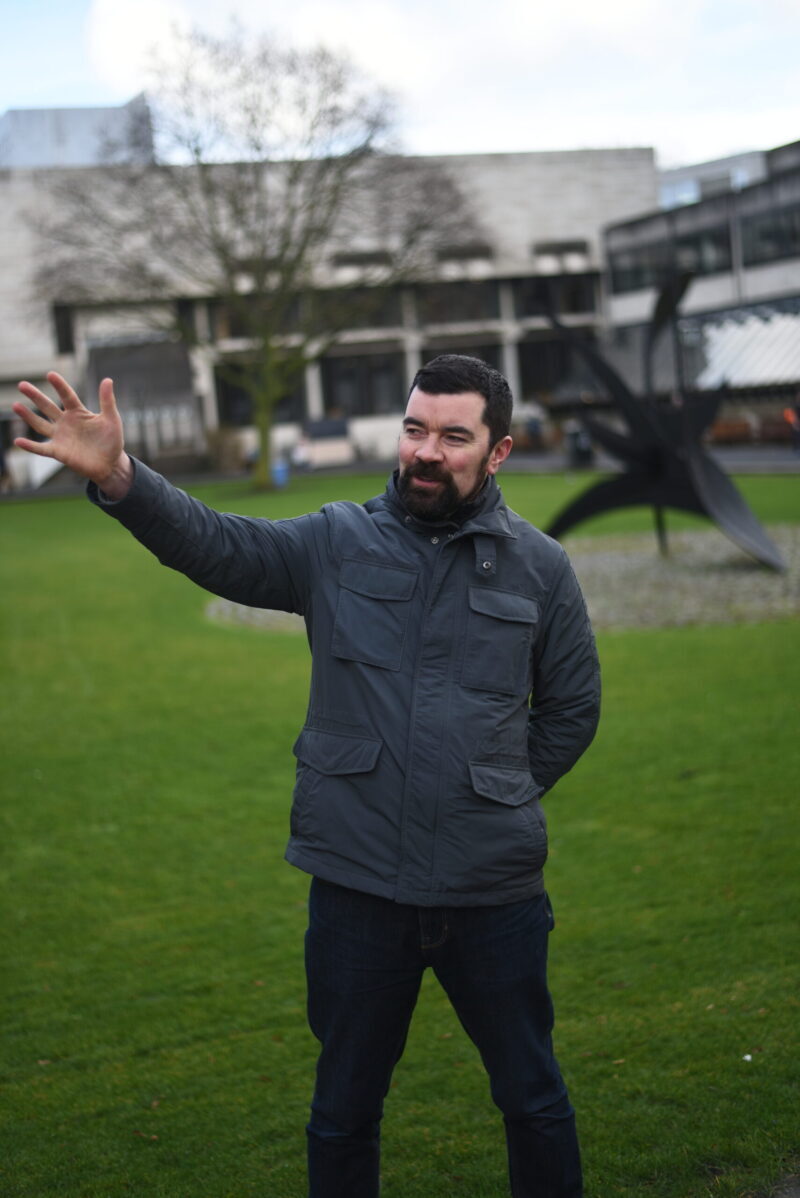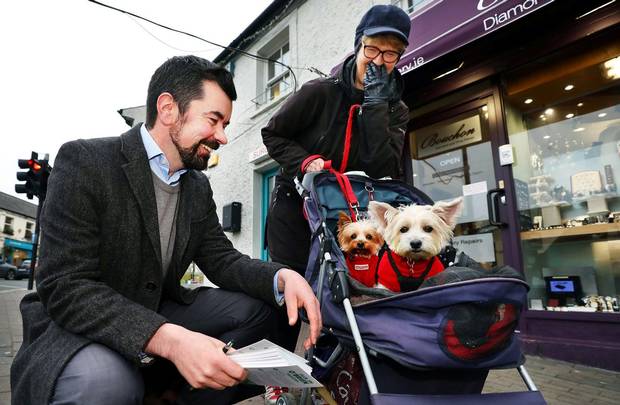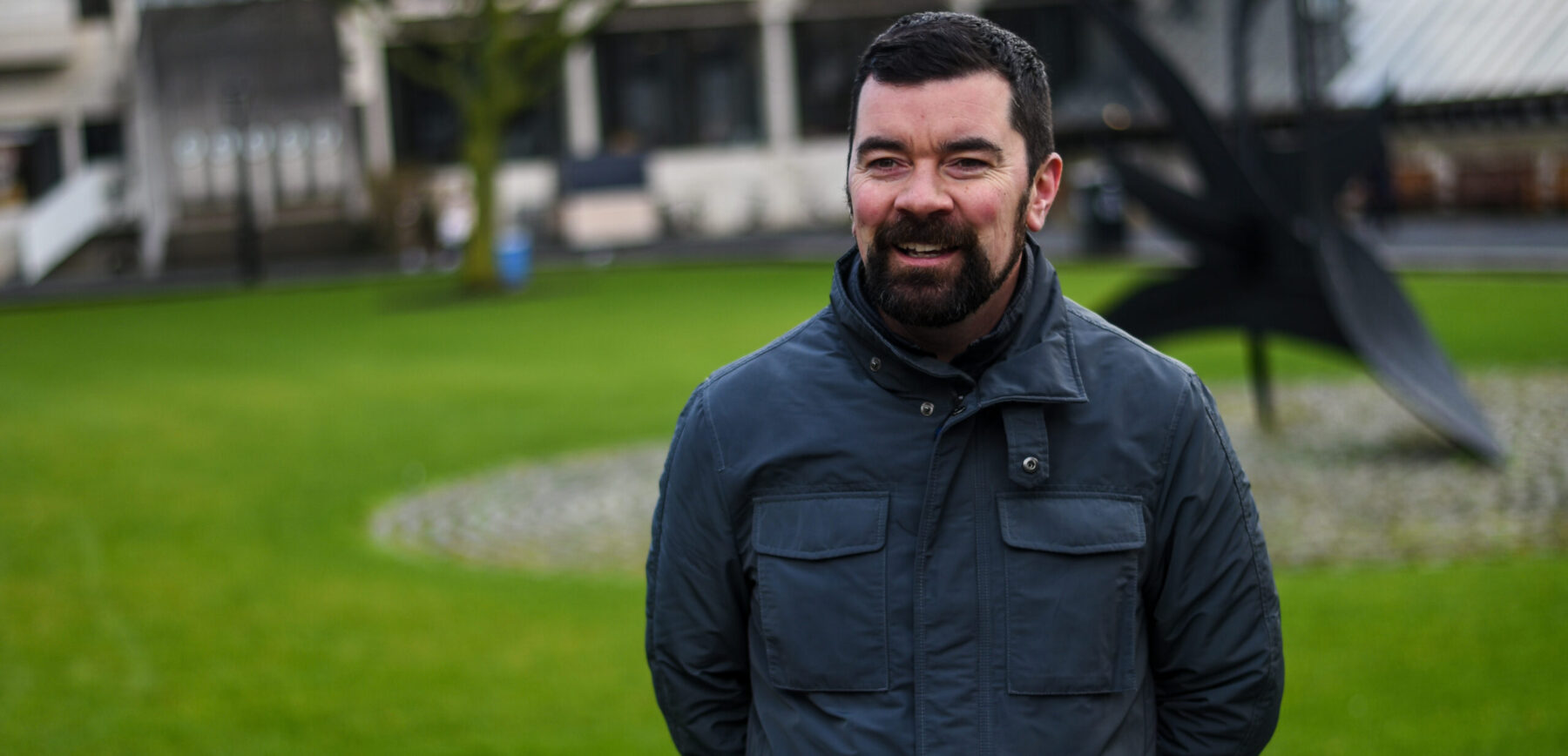Recent polling for the upcoming Irish general election put Fianna Fáil in the lead over main rivals Fine Gael – a revelation that shocked many. So it’s perhaps not surprising, given how much political oxygen the parties’ rivalry has consumed, that another significant trend of the election has received less attention. But a modest resurgence of the Green Party is borne out by many polls, and if predictions are correct then the Greens are looking at an end to their time in the political wilderness.
The Green Party has paid a heavy price in recent times for entering into coalition with Fianna Fáil in 2007: in 2011, four years later, the party suffered total annihilation at the ballot box, and it’s been a long way back. But the environment is now politically charged in a way it has rarely been until now, and when you couple recent polling with the party’s impressive performances in the local and European elections, it becomes clear that the Greens could be in line for a real return to the fray.
Evidence suggests that we could be about to see such a hotly contested election that smaller parties like the Greens could be potential kingmakers.
So, naturally, it is reasonable to wonder what course of action these potential kingmakers would take in the event of the hypothetical becoming reality and the curly finger of a major party beckoning. Would the Greens this time reject the formerly poisoned chalice of a coalition government? Or would they seize what might be their only opportunity to occupy a uniquely influential position in Irish politics?
Joe O’Brien is perhaps the perfect person to discuss these matters with. He’s the first winner of a by-election in the Green Party’s history, and is emblematic of the party’s improved political fortunes. Hailing from a professional background of lobbying politicians on human rights issues in the NGO sector, Joe O’Brien took the attitude that “shouting from the sidelines” can only get you so far in trying to bring about real change, and decided to step into the realm of politics himself.
This choice heralded a whirlwind rise to prominence, as O’Brien was first elected as a local councillor representing Balbriggan for five months, before being swept into the Dáil in November 2019 as TD for Dublin Fingal, marking a seamless and rapid transition from local to national politics. But now, with February 8th looming, O’Brien must do it all over again in order to retain his seat.
When I put it to him that his recent by-election victory secures his right to an august legacy no matter the result in February, O’Brien does not show the slightest hint of self-satisfaction: “Yeah, it’s kinda nice to have that little piece in history. But a number of things fell in my favour before the campaign and as the campaign went on, so I’m not egotistical enough to think that I’m amazing and that I’m better than any other Green candidate ever.”
I realised, hang on, maybe not all politicians have terrible reputations, maybe not all politicians are two-faced
“It’s always a mix of putting in the work, persisting with the work, and waiting for the circumstances and the situation to fall in your favour. And, luckily, this time, they fell in my favour.”
A rank-and-file member of the Greens before representing the party on the ballot paper, O’Brien claims it was not personalities that inspired him to have a go at politics. Rather, it was what the party stood for that really motivated him to nail his colours to the Greens’ mast. He tells me: “I don’t like the deification of political figures because it’s ultimately built on illusion. It was very much the party’s principles that struck me, and there was really nothing in the policies and the principles of the party that I would disagree with”.
However, he does speak fondly of the mentor-like role that former TD and Green Party leader Trevor Sargent played in his political upbringing. Sargeant’s common touch and work ethic fundamentally moulded his approach to politics, O’Brien says, helping him to learn the modus operandi of a public figure.
“Trevor was the TD at the time I joined the party. I would have observed Trevor and how he worked, how he dealt with people, and how he did business, and it did strike me that this was a fairly humble, straightforward guy who does the business pretty straight and pretty honest.”
“This is when I realised, hang on, maybe not all politicians have terrible reputations, maybe not all politicians are two-faced like a lot of people might think.”
Later in the conversation, as we drill down into the nitty-gritty of what O’Brien means by the “principles and policies of the party”, I ask him whether he believes the Green Party is hindered by a widespread conception of it being a single-issue party. O’Brien insists that the Greens are not only moved by ecological devastation, but also dedicated to alleviating broader societal ailments: “I think it’s possible that we do suffer from that perception, and I think it’s our job to broaden that out. And I think we have been successful in doing that in lots of areas.”
“For example, something that we speak a lot about, and something that actually goes hand in hand protecting the environment, is quality of life.”
O’Brien goes on to argue for his party’s credentials in providing pragmatic, sensible governance in other areas that, he believes, have become synonymous with the Green Party over the years: “Another area we have become increasingly identified with is the whole area of planning. So, in Dublin Fingal, my constituency, it’s an area that has grown an awful lot in the past during Celtic Tiger times. And in those Celtic Tiger times, infrastructure wasn’t put in, wasn’t planned beforehand, wasn’t built along with the housing.”
“Now we’re seeing the same thing happening again and that quality of life issue is wrapped up in that as well. I think people are seeing us as strong in this area.”

O’Brien says former party leader Trevor Sargent had a major influence on his view of politics.
Another reason for the Green Party being framed as tough on climate action and soft on any other issue, O’Brien claims, is the media’s irresponsibility in picking and choosing which aspects of Green Party policy they give a platform to.
“A lot of what happens is down to media response. The media will not necessarily always go to the Green Party for a statement on the trolley crisis, even though we did an extensive press release on it. They may not necessarily go out on a limb to talk to us about homelessness, but I’m happy to talk a lot about that because it’s an area I’ve worked in.”
O’Brien says that “ultimately, we’re people who want to improve our communities and the places that we live in”.
O’Brien is, however, keen to stress that it’s not always helpful to see socio-economic issues as being wholly divorced from the health and wellbeing of the climate: “An awful lot of these other issues are quite linked to the environment and the wider world that we live in as well. We would say pretty much everything is, in one way or another.”
That being said, the actions of many Green Party politicians have come under fire in recent months, making them appear weak on social and economic changes. Many criticised the party’s support for the O’Devaney Gardens redevelopment plan as amounting to a vote in favour of the status quo, effectively squandering an opportunity for the construction of public housing.
People Before Profit painted the Greens as co-conspirators of the establishment parties, who had colluded with political actors they purport to oppose: “By agreeing to this disgraceful deal, the Greens and the Social Democrats join Labour in the long list of parties that sell out working-class people. Their vote is a signal of what will happen on a national level. The votes of Labour, Green and Social Democrats will be used to prop up a Fianna Fáil led coalition. We have been warned.”
I put these accusations to O’Brien, and he tells me that his instinct is to keep public land and housing in public hands. Yet, he hints that the bureaucratic imperatives of local and national government can tie the hands of elected representatives.
“Ideally, my head says public land should be used for public housing. But, when you get into the nitty-gritty of it, things can get more complicated – especially when the executive has a large control over the land as well, in terms of what they do.”
“There is a fairly complex interplay between the executive and the councillors in terms of power, and there is quite a lot of power concentrated in the executive in local government in Ireland – more so than most European countries.”
Ultimately, we’re people who want to improve our communities and the places that we live in
He adds that with the current Fine Gael administration in power, there will continue to be no prospect of a serious programme for building public housing being put in place. The unwillingness of the Fine Gael government to be proactive on public, affordable housing is to O’Brien’s mind simply a feature of the the government’s political culture.
“It’s so frustrating that we all know what the solution is, but that government isn’t doing it. And it’s clearly ideological that they’re not doing it. We need to build public housing on public land – it’s not rocket science. It’s not that we can’t do it. It’s the simple fact that the government, who has been in power for some time now, has decided not to do it.”
So, in the light of these comments on his preference for increased public intervention in the area of housing, how does he account for the behaviour of Green Party councillors who gave the green light to Bartra, a private developer contracted to build 768 houses and apartments on site at O’Devaney Gardens? His answer is that decision-making is deceptively complex.
“My understanding, and this is second-hand from my colleagues on the council, was that either nothing was going to happen with the land or this was going to happen with the land. And a proportion of the proposed deal was a certain amount of it would be used publicly.”
At this point in the conversation, we finally return to coalition governments. O’Brien is a little cagey: he’s noticeably vague about how his party would react to becoming kingmakers. He makes it very clear that we are dealing in the abstract here, but he does foresee the possibility of the circumstances arising in which the Green Party could find themselves, once more, plucked from the sideline.
“With the way the political party landscape has developed in Ireland over the last couple of years, I think it’s clear that we’re looking at minority government possibly, but most certainly, coalition government. And, I think we’re viable coalition partners potentially, depending what’s on the table. And we would be in a very strong position to influence a viable programme for government.”
O’Brien’s desire to see his party’s vision for Irish politics included in the shaping of the next government’s list of priorities is clear. When I ask him if he still encounters any mistrust on the doorstep from voters, he tells me, “not anymore”.

O’Brien on the campaign trail in Malahide.
“In the 12 to 24 months after 2011, there was a bit of that, for sure, understandably so. We had an economic crash, we were in power at that moment, it’s probably only right and just that we should get stick. I think people have moved on and now see the greater, wider issues that now need to be tackled as well.”
I wonder if O’Brien believes a more tenacious approach should be adopted by the Greens if a similar deal to their previous coalition agreement with Fianna Fáil were to be brokered this time around.
“I was on the outside last time”, he says. I wasn’t party to all the ins and outs. I think we were to a large extent victims of what actually happened to the country, and what happened in the country when we were in government had its foundations years beforehand.
“How would we do things differently? I think we would be more cautious.”
Could the party set more red lines this time around? He is not a fan of the idea: “Red lines in negotiations are dangerous because it’s like shutting down shop before you even get to the table.”
I think we’re viable coalition partners potentially, depending what’s on the table
“In negotiations”, he adds, “yeah, absolutely. But it would be silly of me to throw out red lines now without agreeing on them with my colleagues. And as a negotiating tactic, it’s not generally a wise negotiating tactic, in terms of trying to get things done”.
When I ask him if entering a coalition with either of the major parties would represent a conflict of interest to him, given his background in human rights and social justice, he is plain that realpolitik must, ultimately, trump idealism.
“If you’re looking honestly at how politics works in Ireland, then you’re one of two types of TD: you’re either a TD who literally wants to always, regardless of what’s on the table, protests at the sidelines and not have to make any hard decisions. Or you’re someone who is actually willing to get your hands dirty and actually do things.”
“Your reputation may be slightly not as shiny as it was when you were elected, because the fact is you can do more things in government than outside government.”
His casting of political actors into two defined categories betrays a real dualism to Joe O’Brien. On the one hand, he is a fresh face to Irish politics with a passion for finding a new way of doing things, but in the hints he drops about his attitude toward coalition government and partnership with parties seemingly so at odds with his own beliefs, there’s an argument that he represents a more old-fashioned brand of Green TD – not unlike the old Green Party stalwarts who cosied up with Fianna Fáil almost a decade ago. Could history be about to repeat itself?







